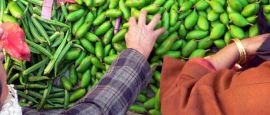Myanmar - Money
Currency & Money
Kyat (MMK; symbol K) = 100 pyas. Notes are in denominations of K 20,000, 10,000, 5,000, K1,000, 500, 200, 100, 50, 20, 10, 5 and 1. Notes below K50 are very uncommon in daily transactions due to their low value. Coins exist in denominations of K100, 50, 10, 5 and 1, but they are rarely used in everyday commerce.
Myanmar is largely a cash-based society, and credit cards are only accepted at major hotels, international restaurants, and select shops in cities like Yangon and Mandalay. Visa is more commonly used than Mastercard. Due to ongoing disruptions to banking services, travellers should be prepared to pay in cash for most purchases, especially in smaller towns and rural areas.
ATMs are available in most cities and larger towns, but only a limited number accept international cards, and they dispense kyat only. Travellers should be aware that ATMs typically charge high fees, offer unfavourable exchange rates, have withdrawal limits, and may occasionally be out of service. It is advisable to carry sufficient cash as a backup.
There are no legal restrictions on the amount of foreign currency you can bring into Myanmar, but amounts over US$10,000 (or equivalent) must be declared upon arrival. Exporting kyat is not allowed, and any unspent local currency should be converted before departure.
Currency exchange is best done at official money changers, banks, or authorised counters at airports and hotels. US dollars are the easiest foreign currency to exchange, but only clean, undamaged notes are accepted. Also, exchange counters may refuse US dollars with the letters AB and CB at the start of the serial number (top left-hand corner of the note). Other currencies such as euros and Singapore dollars may also be exchanged at select locations, though rates can vary.
Do you have any Feedback about this page?
© 2025 Columbus Travel Media Ltd. All rights reserved. No part of this site may be reproduced without our written permission, click here for information on Columbus Content Solutions.




 You know where
You know where